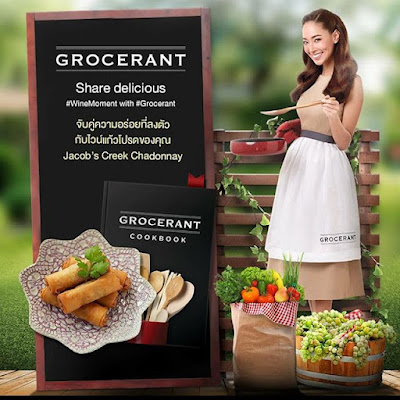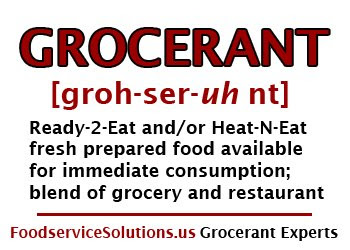America’s
dinner table is shifting—and fast. The traditional grocery store is no longer
the default destination for meal decisions. Instead, consumers are migrating
across channels—convenience stores, restaurants, online aggregators—seeking
better value, quality, and convenience in the face of rising grocery prices.
This consumer migration isn’t just a trend—it’s a direct response to what I
call the Consumer Meal Spending Discontinuity according to Steven
Johnson Grocerant Guru®
at Tacoma, WA based Foodservice
Solutions®.
The Trigger: Government Policy + Tariffs = Consumer
Frustration
According
to a new survey by the Feedback
Group, 61% of U.S. grocery shoppers report heightened stress
over food prices, with Gen Xers feeling it most acutely at 70%. Across all
generations, frustration is rising—especially at perceived policy failures.
Government actions, including tariffs and trade restrictions, are now viewed as
the top cause of food inflation. In fact, 82% of shoppers believe
tariffs will lead to higher grocery prices, with nearly half expecting
significant increases.
This
perception has real consequences. The survey found that 34% of shoppers plan to
cut grocery spending. But where are those dollars going?
Let’s
break down the consumer migration story across four key battlegrounds:
1. Convenience Stores: The New Everyday Food Stop
What’s
Happening:
C-stores are winning meal occasions with quick-serve options, aggressive
pricing, and location convenience. According to NACS data, 59% of
c-store foodservice sales now come from prepared foods, and 44% of Millennials
buy meals or snacks from a c-store at least once a week.
What
It Means:
With grocery prices surging and stress rising, consumers are increasingly
viewing convenience stores as fast-food alternatives or even grocery
substitutes for grab-and-go meals. Expect continued growth in made-to-order
programs, fresh grab-n-go, and bundled meal deals (think: $5 lunch combos and
hot food loyalty perks).
Grocerant
Guru® Takeaway:
C-stores that behave like neighborhood restaurants—offering fresh, fast, and
affordable—are siphoning off grocery and fast-casual dollars, particularly from
Gen Z and working-class consumers.
2. Grocery Stores: Losing Share of Meal Mindshare
What’s
Happening:
While grocers are still the backbone of American food supply, their role in meal
decision dominance is eroding. Shoppers now overwhelmingly blame external
forces (especially tariffs and government policy) for high prices—scoring
policy blame at 4.11 out of 5, up from 3.86 last year.
Yet
ironically, shoppers still believe grocers are raking in profits—estimating net
margins at 30%, when the real figure is closer to 1–3%.
What
It Means:
Grocers face a trust gap and a value gap. Although private-label sales
are rising (82% of shoppers see them as more affordable and 80% say the quality
is comparable), grocers need to lean harder into meal solution marketing,
not just item-based promotions. This means ready-to-heat meals, recipe kits,
and cross-merchandised "what’s for dinner tonight?" sets.
Grocerant
Guru® Takeaway:
Retailers must shift from selling groceries to selling meals. Otherwise,
expect continued erosion of loyalty—especially among value-focused households
and younger consumers.
3. Restaurants: Gaining Ground via Off-Premise & Value
Menus
What’s
Happening:
Restaurants are capturing more share of the consumer food dollar with dynamic
pricing, fixed-cost meal options, and expanding takeout. According to the
National Restaurant Association, off-premise dining now accounts for 68% of
total restaurant traffic.
Quick-service
chains are responding with $4–$7 combo deals, family meal bundles, and digital
loyalty offers that make meal math more predictable—and in some cases,
cheaper—than grocery shopping.
What
It Means:
Consumers aren’t just eating out—they’re opting out of high grocery
prices. And they’re using restaurant value menus as grocery alternatives,
particularly for lunch and dinner.
Grocerant
Guru® Takeaway:
Restaurants that market themselves as meal solution providers—not
indulgences—are pulling grocery dollars straight into the drive-thru. Expect
more bundling, more meal kits, and smarter loyalty targeting.
4. Online Aggregators: Subscription Meets Substitution
What’s
Happening:
Instacart, Uber Eats, DoorDash, and Amazon Fresh are evolving from delivery
platforms to dinner deciders. With meal subscriptions, dynamic promos,
and AI-generated weekly meal plans, they’re capturing grocery and
restaurant intent simultaneously.
A
2025 eMarketer report shows that 47% of shoppers use at least one aggregator
for weekly meal planning, and 31% say they use aggregators to compare
pricing between grocery and restaurant options.
What
It Means:
These digital ecosystems are removing friction in price comparison and
expanding consumer choice—often pitting your meal aisle against someone else’s
menu in real time.
Grocerant
Guru® Takeaway:
Online aggregators are accelerating the Consumer Meal Spending Discontinuity by
enabling hybrid habits: order your pantry staples, reheat a restaurant meal,
and still feel like you “cooked dinner.”
Final Word from the Grocerant Guru®:
The
American consumer is no longer loyal to a single channel. They're loyal to value,
convenience, and solutions. As long as food inflation is perceived to be
out of their control—and driven by factors like tariffs and policy—shoppers
will continue to migrate, meal by meal, to whoever gives them a better deal and
a faster answer to “What’s for dinner?”
If
you're a food retailer in 2025, you're not just competing on price.
You're competing on perception, portability, and plate-ready convenience.
The
discontinuity is here. The migration is real. Are you ready?
Elevate Your Brand with Expert Insights
For
corporate presentations, regional chain strategies, educational forums, or
keynote speaking, Steven Johnson, the Grocerant Guru®, delivers
actionable insights that fuel success.
With
deep experience in restaurant operations, brand positioning, and strategic
consulting, Steven provides valuable takeaways that inspire and drive
results.
💡
Visit GrocerantGuru.com or FoodserviceSolutions.US
📞 Call 1-253-759-7869








No comments:
Post a Comment